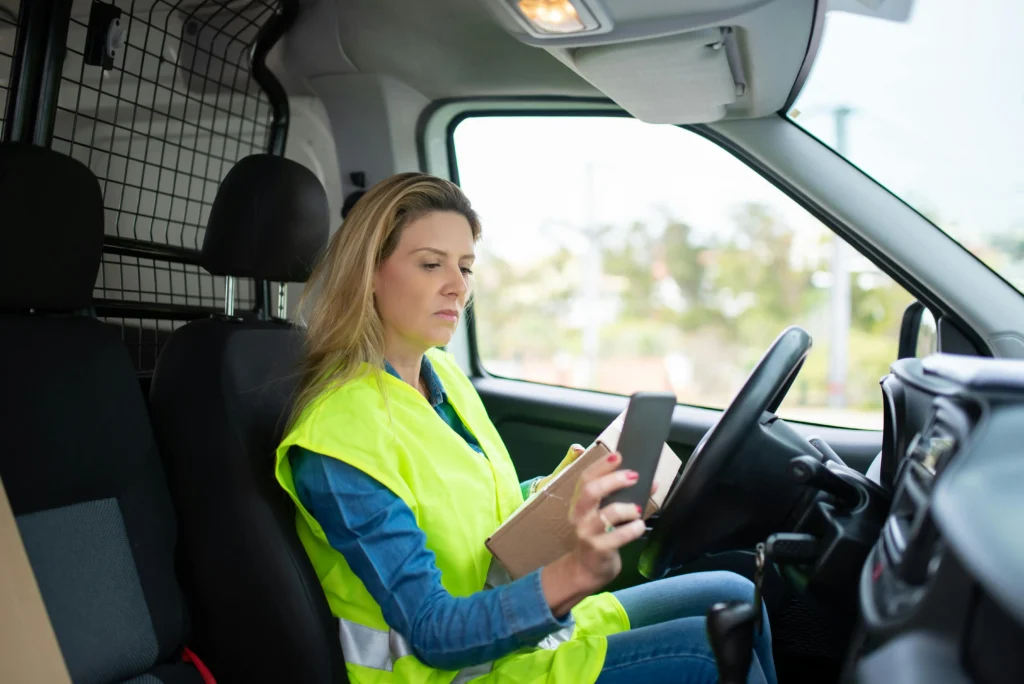
The logistics world of today is highly dependent on efficient, reliable, and seamless operations. With increasing demand for transparency, speed, and accuracy to ensure a smooth flow of goods and services, real-time tracking in logistics comes into play.
Using advanced technology to monitor the location and status of shipments in real time allows businesses and logistic providers valuable insight into supply chain demands as well as potential indicators of issues that need troubleshooting. These improvements are data-driven, increasing efficiency and productivity for all parties involved.
Real-time logistics tracking solutions provide you with minute-by-minute information on when your parcel is dispatched. All the way to when it reaches its final destination, keeping you informed of your shipments. This visibility allows you, as a logistics service provider, to meet your clients's demands and verify your service pool with an accurate date. Therefore, increasing your chance to grow your client base and meet their expectations of quicker delivery times and shipment tracking accuracy.
The ability to monitor any shipment or vehicle remotely using advanced technology is no longer a novelty but a need. Logistics tracking solutions such as GPS tracking, RFID (Radio Frequency Identification), and IoT (Internet of Things) allow businesses to collect and analyse data from multiple sources for operational purposes. Routes can be optimised, delivery times can be reduced, and potential delays or reroutement can also be managed. All of this allows for efficient and seamless operations for any logistics company.
As mentioned before, a major advantage of real-time tracking is increased efficiency. This allows for getting the most from the money spent, but that is not all. Clients and service providers both gain enhanced security by being able to track their shipments. The tracking status also protects from theft and loss, or any liable damages. If a shipment is taken on an uninformed detour from its mapped route, it can be identified and recovered.
With real-time tracking, you are able to provide transparency and, if need be, accountability. Customers have full visibility of their shipment and can be notified of the status of their order. When customers trust service providers, they can form a long-lasting bond with them that helps maintain business relationships.
Another benefit of real-time tracking is that logistics service providers can improve their operations as well when they notice irregularities.
Predictive analytics and AI are also playing an increasingly important role in real-time logistics. By analysing vast amounts of data, these technologies can predict potential disruptions, optimise routes and improve overall efficiency. As these technologies continue to develop, we can expect to see even more innovative logistics tracking solutions that drive efficiency and improve customer satisfaction.
With the increase in growth for predictive analytics and AI in more recent times, real-time logistics is able to predict potential issues and disruptions. It might also soon be able to provide alternatives and preventative measures. As this development progresses, we are looking to see the infrastructure of the logistics services model adapt to a new seamless approach. There is no saying what the limits to real-time tracking are for logistics service providers and businesses.
In today’s day and age, many industries actively use real-time tracking. The e-commerce industry, where small or large orders can be delivered across cities or nations, is being able to track. Locally in several cities, courier service providers allow visibility for packages that are to be delivered in the shortest amount of time. The online food ordering industries also utilise and benefit from real-time tracking, like Uber Eats, for instance. Cold chain logistics also greatly value real-time tracking, ensuring perishable goods are maintained at ideal temperatures throughout the supply chain.
Last-mile delivery is when real-time tracking is essential. Fastest and shortest routes lead to quicker delivery times and happier customers. Having said this, industries like transportation, manufacturing, and healthcare also utilise real-time tracking for improved efficiency and security.
Real-time tracking today is not what it used to be. Today it is integrated into several parts of our day-to-day lives, and it continues to evolve. One of the major industries that uses real-time tracking is the logistics service providers. It can be through air, water, or land; anything and everything can be tracked in real time with the right technology. This has led to competitiveness between businesses, all offering transparency, security, and efficiency to their customers. As the demand continues to grow, real-time tracking plays an increasingly vital role in shaping the future of logistics.
Stay tuned to our blog section for the latest advancements shaping the future of logistics!